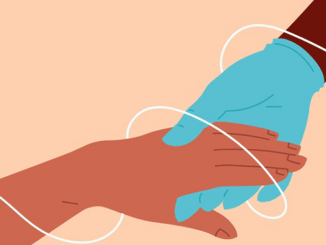
Dr Stephen Nickless on his experience of helping refugee doctors in their professional development
CREDIT: This is an edited version of an article that originally appeared on the RCGPs
The years since I retired have been the most enjoyable and creative of my professional life. At a friend’s suggestion I trained to teach general English and business English to adult learners; this revolutionised my approach to teaching and interest in language.
I did my GP training in Sussex but worked in more culturally and linguistically diverse contexts in London. I enjoyed the challenge of establishing a trusting professional relationship with patients who spoke little English. My patients included many refugees, including from Nazi Europe, the Balkan wars, Somalia, Iraq and Afghanistan.
Volunteering
As of 2013, I have been a volunteer at the Refugee Council where I organise a weekly ‘professional development group’ for refugee doctors. We prepare these doctors for the range of patients and problems they will encounter in the NHS, introduce them to UK professional culture, and help hone their skills as they prepare for the Professional and Linguistic Assessments Board examinations.
Last year the GMC recognised the Australian Occupational English Test as proof of competence in English. As this exam was new to the UK, I worked with a language teacher to create teaching materials for our English classes; this included cases notes to allow for role-playing and practice as consultations. These were then also used to practice writing referral and discharge letters.
We published these as Dear Doctor: English writing skills for clinical practice and the Occupational English Test. This book is useful to any doctor planning to work in English for the first time.
Transferable skills
When I retired, I took advice from friends and seized opportunities when they presented themselves. Retired GPs have an amazing range of transferable skills which should not go wasted or unused. I count myself lucky to have found something which challenges me intellectually, fulfils me as a person, and is congruent with the humanistic and vaguely socialistic values which motivated my medical practice.
You can do the same.


Be the first to comment